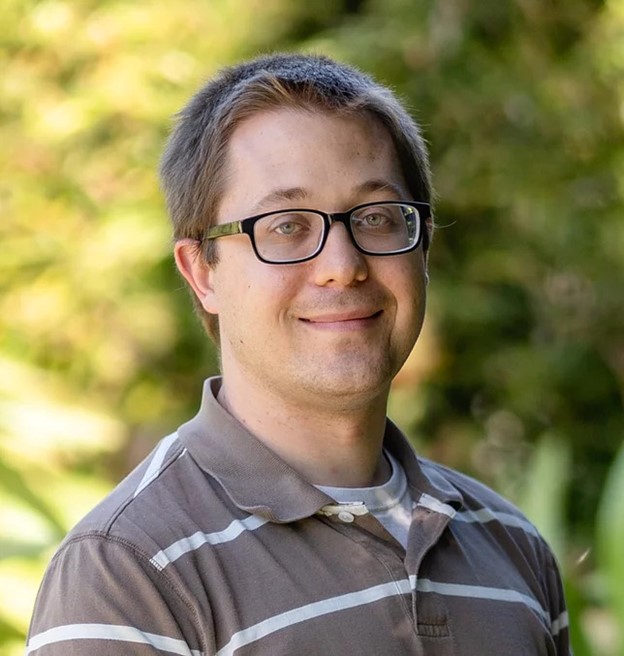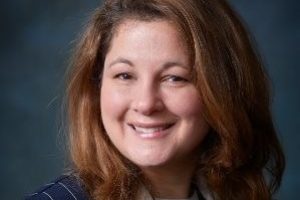
WHAT IS YOUR AREA OF FOCUS OR PRACTICE AREA?
We specialize in helping with all participants in the prescription drug space—manufacturers, pharmacy benefit managers (PBMs), insurers, self-funded employers, etc. I also have a background in medical coding and data analytics and specialize in predictive analytics work using medical claims data.
WHAT LED YOU TO BECOME AN ACTUARY? AND WHAT ATTRACTED YOU TO THE PROFESSION?
I went to college to be a jazz musician but stopped playing just before my freshman year of college. I needed to change my major before I registered for classes, and for some reason didn’t want to be undeclared. “Actuarial Science” started with an “A”, and I knew they did math, so I selected that not intending to stick with it, but the deeper I got the more fun it was. It was also pleasant to learn that actuaries make a lot more money than jazz musicians!
DESCRIBE A PROFESSIONALISM-RELATED CHALLENGE THAT YOU HAVE FACED IN YOUR CAREER. HOW DID YOU HANDLE IT?
I have benefited from working around other great actuaries who have helped me navigate around any professionalism issues such that they never became big challenges.
WHAT ADVICE DO YOU WISH YOU WERE GIVEN WHEN YOU WERE AT THE BEGINNING OF YOUR CAREER?
That relationships are the most powerful way to be influential and successful. There is a great book called Managing With Power by Jeffery Pfeffer. The title sounds really draconian (the version I have even has a red and yellow cover that looks especially menacing!), but it’s a very insightful and subtle book. His main thesis is that there are three types of power: relationship, expertise, and role. Actuaries often have a lot of expertise power (what he says is the least effective type of power), and can be promoted into having role power (also an ineffective type of power), but relationship power is the most dynamic form of power.
TELL US ABOUT A TIME WHEN YOUR ACTUARIAL EXPERTISE INFLUENCED AN IMPORTANT DECISION IN YOUR WORKPLACE.
I had a really fun job starting an actuarial group to work with Optum’s Payment Integrity Product. This product does editing and fraud reviews for health insurance claims, and so had a lot of expertise in medical coding, provider management, and network agreements. My team introduced another layer of sophistication by laying in some more advanced statistical and data science tools to optimize our work, built more robust financial reporting to highlight successes and failures, and worked with the actuaries at our clients to explain the technical aspects of the product and how we evaluate its financial impact.
WHAT IS ONE OF THE BIGGEST LESSONS YOU’VE LEARNED IN YOUR CAREER?
Saying “yes” to every opportunity you are presented with is one of the best ways to expand your skill set and grow as an actuary.
WHAT DO YOU VALUE MOST ABOUT YOUR ACADEMY MEMBERSHIP?
There are a number of Academy practice notes that I have footnoted for quick reference, and I also go to the Academy website when I review the ASOPs (actuarial standards of practice). I also appreciate the “Academy Alert” emails and other policy research work that the Academy does, especially with the constant legislative changes in healthcare.
WHAT YOU LIKE TO SHARE ANYTHING ELSE WITH ASPIRING OR NEW ACTUARIES, OR THOSE INTERESTED IN VOLUNTEERING FOR THE ACADEMY?
Volunteering is a great way to network with other actuaries and learn more about how the profession works.
SHARE A LITTLE ABOUT YOURSELF. WHAT ARE SOME OF YOUR HOBBIES OR OTHER PERSONAL INTERESTS?
My wife Rose and I have 5 kids (ages 10, 8, 5, 3, and 6 months), so they are my main hobby! I also enjoy playing and studying chess, reading—and we enjoy working in our large garden in the summer.


